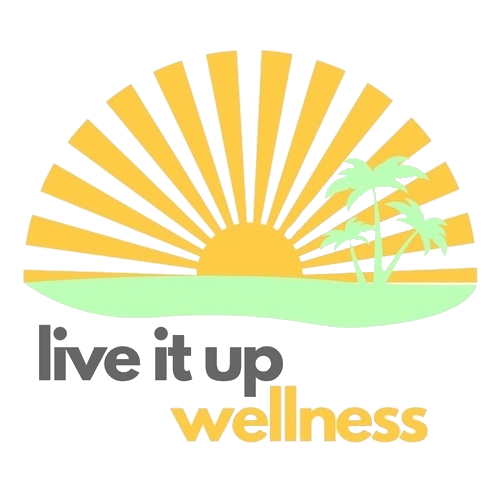Most people eat way too much sugar, and it doesn’t always necessarily come in the form of a candy bar or soda.
Sugar and sugar substitutes are in pretty much all packaged food and drinks. It sneaks up on you in many foods that aren’t even sweet, like salad dressings, condiments, and seasonings.
Many of our packaged foods are also full of refined carbohydrates that have no nutritional value or fiber. These refined carbs turn into glucose in your blood stream and spike your insulin levels, just like sugar does.
There are a myriad of health issues that go along with eating too much sugar and refined carbohydrates, such as high blood sugar, bad bacteria and yeast overgrowth, and diabetes. It affects brain function, mood, and speeds up the aging process. Sugar is also addicting!
Sugar Is Addictive
I struggle with sugar cravings. I always want something sweet after a savory meal. It’s very rare that I can go a night without having something sweet after dinner.
Some alternatives that I have found to satisfy a sweet craving is kombucha, a cup of tea with a little honey, one medjool date, or a piece of dark chocolate.
We all deserve to have a little treat sometimes, but needing it is another matter. I’ve found that when my sugar habits increase (usually around the holidays) I am unable to just stop the sugar and will need to wean myself down. Sugar has been said to be as addictive as opiates.
Eating sugar triggers the release of dopamine which makes you feel great… and makes you come back for more to activate those pleasure responses again.
Sneaky Names For Sugar
There are many different names for sugar and sugar substitutes in packaged food that are worth being aware of. Some are obvious sweeteners and some are much more sneaky:
Agave nectar
Artificial flavor
Aspartame
Barley malt
Beet sugar
Brown rice syrup
Brown sugar
Buttered sugar/buttercream
Cane juice
Cane sugar
Caramel
Coconut sugar
Confectioner’s sugar (powdered sugar)
Corn Syrup
Dextrin
Dextrose
Ethyl maltol
Evaporated cane juice
Fructose
Fruit juice
Fruit juice concentrate
Galactose
Glucose
High-fructose corn syrup (HFCS)
Honey
Lactose
Malt syrup
Maltodextrin
Maltose
Maple syrup
Molasses
Natural flavors
Raw sugar
Refiner’s syrup
Rice syrup
Sorghum syrup
Sucralose
Sucrose
Treacle
Turbinado sugar
Plenty of these are sneaky additives on food labels that consumers wouldn’t recognize as sugar. And many of these ingredients are engineered to make a packaged food’s flavor and texture so perfect, you can’t stop eating it.
The food companies want you to eat and drink more of their products. You know that feeling when you have a delicious salty chip and then you can’t stop eating them? This is what these ingredients do to you.
One myth I want to dispel is that fruit is too high in sugar. The naturally occurring sugars in fruit are not a concern in most cases (outside of certain medical diagnoses where your doctor recommends you avoid it). When it comes to fruit, or fructose, the fiber in fruit helps your body metabolize and regulate the sugar content.
The wide range of powerful vitamins, minerals, and antioxidants in fruit are majorly healthy. Fruit simply doesn’t have the same negative impact that added sugar and sugar substitutes do on your body.
Alternative Sweeteners
The $72 billion diet industry has churned out alternative sweeteners for people trying to avoid sugar and calories. Most of these have been manufactured in a lab and are not good for you.
Splenda (sucralose), Equal and Nutrasweet (aspartame), and Sweet N Low (saccharin) are worse than actual sugar. These “foods” have the same effect on your system as sugar including weight gain, but are also associated with blood sugar regulation issues and insulin spikes, brain and memory problems, mood disorders, and have been linked to cancer.
We also have the glorified “healthy” and “natural” zero calorie sweeteners, like agave and stevia. While their true natural forms are better for you, typically what you’re buying in the store is highly processed and still detrimental to your health.
Just remember that anything sweet will be treated like sugar by your body. You cannot escape that sugar and sugar substitutes will affect your body and health…
So use the high quality stuff and try to enjoy it in moderation.
Not Only Is Sugar Addictive, We’re Eating Way Too Much of It
Have you ever tried to track your sugar intake for the day? Try it. You might be shocked how many grams of sugar you’re getting. The maximum recommended daily intake of added sugar by the American Heart Association is 25 grams for women and 38 grams for men.
According to the Angeles Institute, the average American consumes 71.14 grams of sugar every day.
Being aware of sneaky places for added sugar and cutting it back is a good place to start for health and weight loss goals. Check the ingredient labels on your packaged foods. What are the major culprits for your daily sugar intake?
If you struggle with food cravings and making health changes, you are not alone. These are very common problems for people and it takes time, patience, and support to make changes. I have gone through (and still go through) it myself and I would love to help educate you and work through the challenges of changing your eating habits to transform your health.
Send me a message to learn more about my one on one health coaching program! I would love to work with you.

![[Original size] Live It Up Wellness.jpg](https://images.squarespace-cdn.com/content/v1/59e4bdca64b05fe9e6c54e94/1580939604693-OP8O8CE6459AX1HGQUGW/%5BOriginal+size%5D+Live+It+Up+Wellness.jpg)


